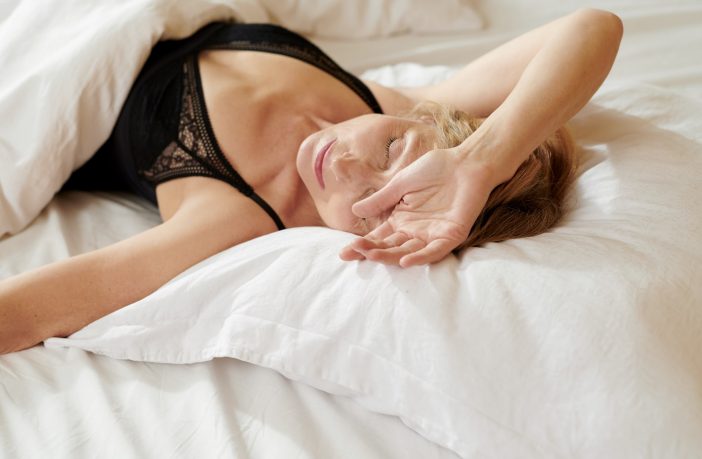Restful sleep can be difficult for some of us even when we’re not in the middle of a global pandemic. Jenny Amphlett spoke to a psychological wellbeing practitioner for some expert tips to help you get a good night’s sleep
Many of us go through phases of struggling to sleep, whether that’s finding it difficult to drift off in the first place or waking at intervals during the night. But if we arm ourselves with the right tools, sleep doesn’t have to be a battle.
As a psychological wellbeing practitioner with the NHS’s Talking Therapy Service, Lauren Wright often encounters people dealing with disturbed sleep.
“I see clients for low mood and anxiety, OCD, generalised anxiety, sleep problems, depression and panic attacks,” she says.
“It’s not often that I see a client whose only problem is with their sleep, but sleep problems are often part of other issues that we look at.
“I often help clients with what we call sleep hygiene – that’s helping them to cope with problems with their sleep and helping them to improve their sleep.”
Lauren says sleep problems can actually be down to people worrying about sleep, so she tries to educate them about the sleep process so that they understand why they wake up in the night.
She also tries to arm her clients with a sleep toolkit, to help them to get the best possible night’s sleep. This includes:
- Lauren tells people that their bed should only be for sleep or sex. She says: “It’s become a massive problem that people use their bed for everything, they even work in bed and watch TV in bed. This issue has increased even more with people working from home and needing to find a quiet, unshared space to work.”
- Lauren gives people a quarter of an hour rule. She tells them that if they have been in bed and trying to get off to sleep for more than 15 minutes then they should get up and do something boring, that will hopefully help to make them feel tired. The aim is to avoid lying in bed watching the clock and becoming stressed or anxious.
- Lauren recommends a good pre-bed routine. “Don’t work, do anything too mentally taxing or watch anything super scary for the last hour before you go to bed, or it’s going to wake you up. Give yourself 15 minutes at the end of the day for a routine which could include washing your face, putting on your pyjamas and cleaning your teeth.”
- If you have naps in the day, Lauren says you should try to break the habit as it will make it more difficult to fall asleep at night.
- Try to get up and go to bed at the same time each day. Lauren says that many people don’t realise the impact this one step alone can have on their sleep.
- Lauren says it’s a myth that everyone needs eight hours of sleep. “Not everyone needs eight hours. Some people need six hours of sleep. Everyone is different. If you can’t sleep for eight hours at night it may just be that you don’t need to sleep for that long.”
- Limit your alcohol intake and don’t drink alcohol right before you try to go to sleep. Lauren says that having alcohol in your system means you won’t sleep as well.
- Limit nicotine before you go to bed.
- Caffeine can take six hours to leave your body so don’t have tea, coffee or fizzy drinks for six hours before you go to bed.
- Lauren recommends limiting noise at bedtime and making sure that your bedroom isn’t too warm as it’s easier to sleep in a cooler temperature.
- Try to limit the light in your bedroom and dim the lights for a while before you get into bed.
- Don’t exercise right before going to bed.




